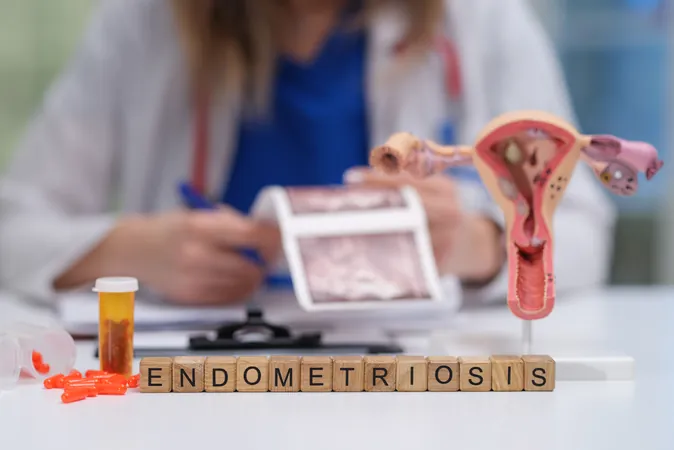
Revolutionary Survey: Dietary Changes Could be Key to Easing Endometriosis Pain!
2025-04-25
Author: Li
Can Your Diet Relieve Endometriosis Pain?
New research published in JAMA Network Open suggests that tweaking your diet might be a game changer for those suffering from endometriosis-related pain. While not every medication has proven effective, many women are finding relief through dietary modifications, according to the findings.
Understanding Endometriosis: More Than Just Pain
Endometriosis is a complex reproductive disorder where tissue similar to the endometrium grows outside the uterus, causing a multitude of symptoms, including persistent pain, fatigue, infertility, and gastrointestinal issues like bloating and IBS. Diagnosis and treatment remain challenging, typically relying on hormone therapies or surgical options.
The Gut Connection: Can Food Choices Make a Difference?
With growing evidence suggesting that the gut microbiome influences pain perception in inflammatory conditions, researchers aimed to explore whether dietary changes could ease symptoms. They distributed an online survey from June to September 2022, collecting data from participants about their dietary habits and supplement use.
Study leader Francesca Hearn-Yeates, a PhD researcher at the University of Edinburgh, highlights the urgency for effective pain management, stating, "Women in need deserve better solutions. There’s a potential link between gut bacteria and endometriosis that many are exploring through diet."
Survey Insights: What the Numbers Reveal
Out of 2,858 initial respondents, 2,599 completed the survey, with 2,388 diagnosed with endometriosis. A staggering 96.9% reported experiencing pelvic pain, while 91.2% faced abdominal bloating. About 83.8% had tried one or more diets for symptom relief, and 58.8% used supplements, resulting in significant reports of improved pain through self-help strategies.
The Pain Relief Effect: Statistical Findings
Statistical analysis showed that those who modified their diets reported significantly lower pain scores compared to those who did not. Specifically, participants who experienced pain relief had a median score of 4.0, while those who did not report improvement scored 5.0, indicating a notable difference.
Positive Dietary Changes: What Worked?
The results revealed that 53.2% of those who cut back on alcohol noticed less pain, with 45.4% reducing gluten, 45.2% minimizing dairy, and 43.4% cutting caffeine also reporting improvements. Interestingly, the low-FODMAP diet wasn’t as popular, only followed by 32.1% of participants.
Empowerment Through Knowledge: The Path Forward
"We’re on the brink of a breakthrough in understanding how diet impacts endometriosis symptoms. It’s vital for women to feel empowered in managing their condition," says senior study author Philippa Saunders, a leading professor in reproductive health. This study underscores the need for robust research into non-hormonal treatment options and highlights the incredible role of diet in symptom management.
A New Dawn for Endometriosis Sufferers?
As women continue to seek answers and relief, these findings offer a glimpse of hope. By harnessing the potential of dietary changes, many may find a path to alleviating the relentless pain of endometriosis.

 Brasil (PT)
Brasil (PT)
 Canada (EN)
Canada (EN)
 Chile (ES)
Chile (ES)
 Česko (CS)
Česko (CS)
 대한민국 (KO)
대한민국 (KO)
 España (ES)
España (ES)
 France (FR)
France (FR)
 Hong Kong (EN)
Hong Kong (EN)
 Italia (IT)
Italia (IT)
 日本 (JA)
日本 (JA)
 Magyarország (HU)
Magyarország (HU)
 Norge (NO)
Norge (NO)
 Polska (PL)
Polska (PL)
 Schweiz (DE)
Schweiz (DE)
 Singapore (EN)
Singapore (EN)
 Sverige (SV)
Sverige (SV)
 Suomi (FI)
Suomi (FI)
 Türkiye (TR)
Türkiye (TR)
 الإمارات العربية المتحدة (AR)
الإمارات العربية المتحدة (AR)